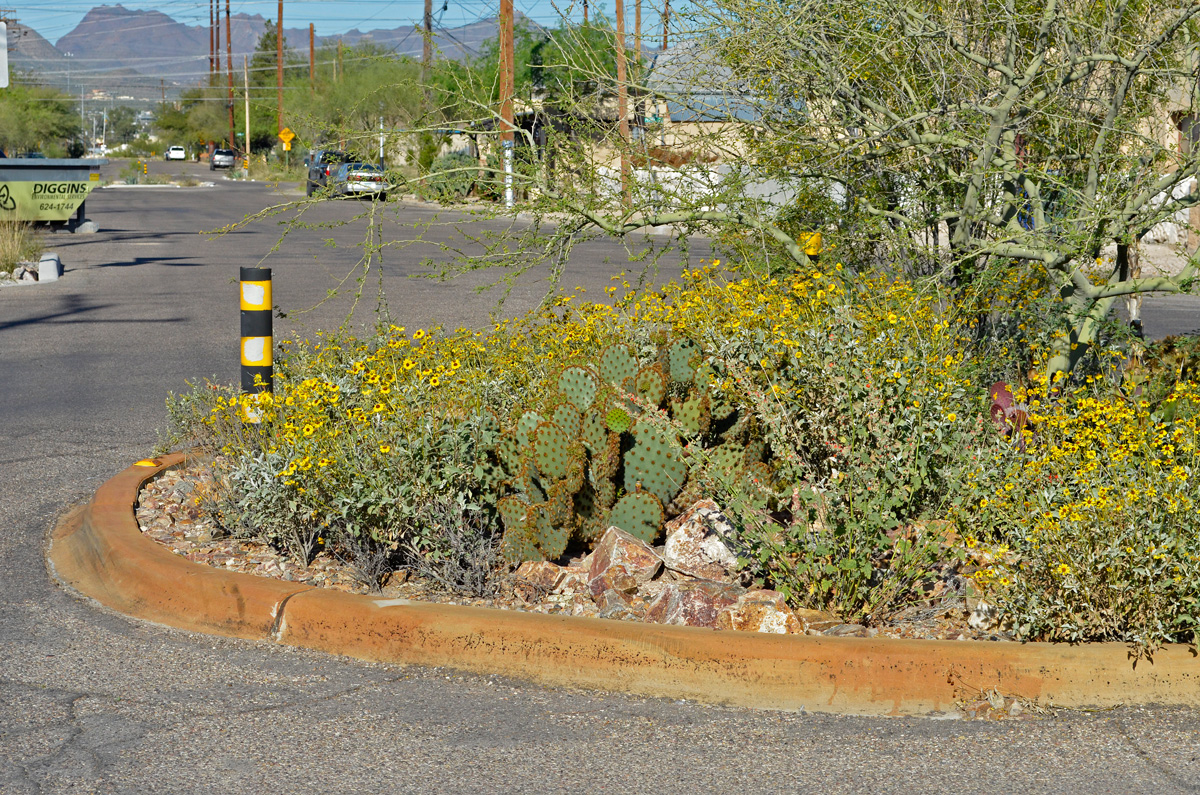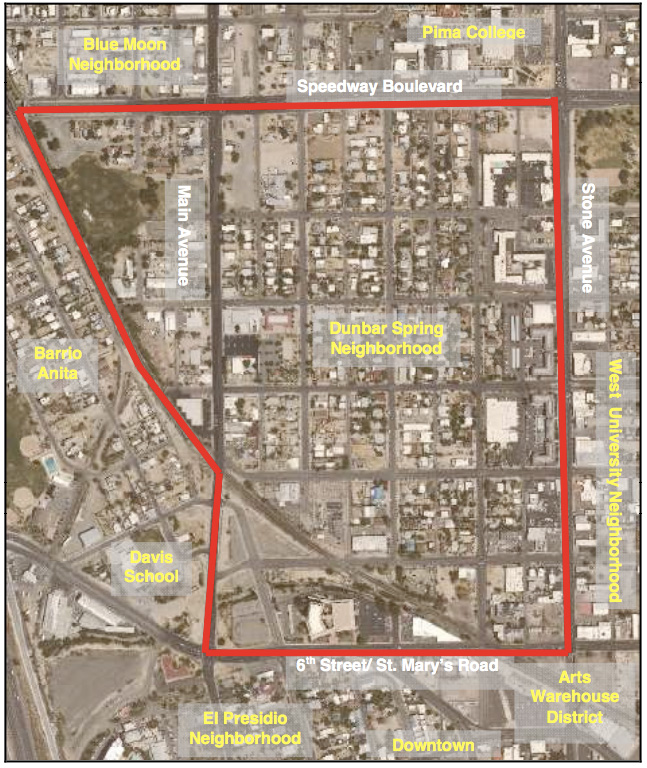About the Dunbar/Spring Neighborhood
The Dunbar/Spring neighborhood is a small, historic, and culturally diverse neighborhood located at the north end of downtown Tucson. The name Dunbar/Spring (not “springs”) is derived from one prominent Tucson citizen, John Spring, who was one of Tucson’s first teachers, and an African-American poet, Paul Lawrence Dunbar. Dunbar/Spring has had a strong cultural identity as the first African-American neighborhood in Tucson.
The neighborhood is home to several churches as well as several social service agencies including the Salvation Army Hospitality House. Following the decline of downtown by the turn of last century, the neighborhood suffered from crime, abandoned properties, disinvestment, and encroaching commercial development that was harming the residential fabric of the neighborhood. Thanks to the commitment and energy of an increasing number of newcomers combined with the historical wisdom and values of our long-term residents, Dunbar/Spring began to turn itself around and has once again become a vibrant community.
Dunbar/Spring and the Downtown Community.
The Dunbar Spring neighborhood is bordered by Speedway Boulevard to the north, Stone Avenue to the east, Sixth Street to the south and the Union Pacific railroad and Main Avenue to the west. Our neighbors are Blue Moon to the north, Barrio Anita to the west, El Presidio and the Arts Warehouse District to the south, and West University to the east. We are represented by Tucson Ward I and Pima County District 5 (Precinct 143). We are in state legislative district 20 and Congressional district 7.
The current Dunbar/Spring Neighborhood Association (DSNA) was formed in the 1980s, combining the former Dunbar Neighborhood Association with the John Spring Neighborhood. Prior to the new association being formed, neighborhood groups fought against each other and relations were strained if not acrimonious. Since then, neighborhood elders, leaders, and activists have worked cooperatively to bring together a diverse neighborhood under the main goal of making it a better place to live. Crime rates have dropped, abandoned houses have been rescued, new families have moved in, and the neighborhood has become a more desirable place to live. Neighborhood relations have improved, but challenges will likely always remain given the history and diversity of Dunbar/Spring. In recent years a resurgent economy in and around downtown has been both good and bad for Dunbar/Spring neighbors. Housing prices and property taxes have spiked forcing some long-time residents out of the neighborhood.
Dunbar/Spring is unique in that any resident or business is entitled to be a member of DSNA, including both owners and those who rent. DSNA considers all residents and businesses in the neighborhood to be members of the organization and advocates on their behalf. DSNA is governed by an elected board consisting of a president, vice president, secretary, treasurer, and parliamentarian. General membership meetings are held the 3rd Monday evening of every month in the Dunbar School, with the exception of Martin Luther King Day in January. DSNA collects no fees or dues from members, but produces an informative newsletter that is mailed to all residents. The neighborhood also has a list serve that fosters regular communication including information about upcoming meetings and events.


